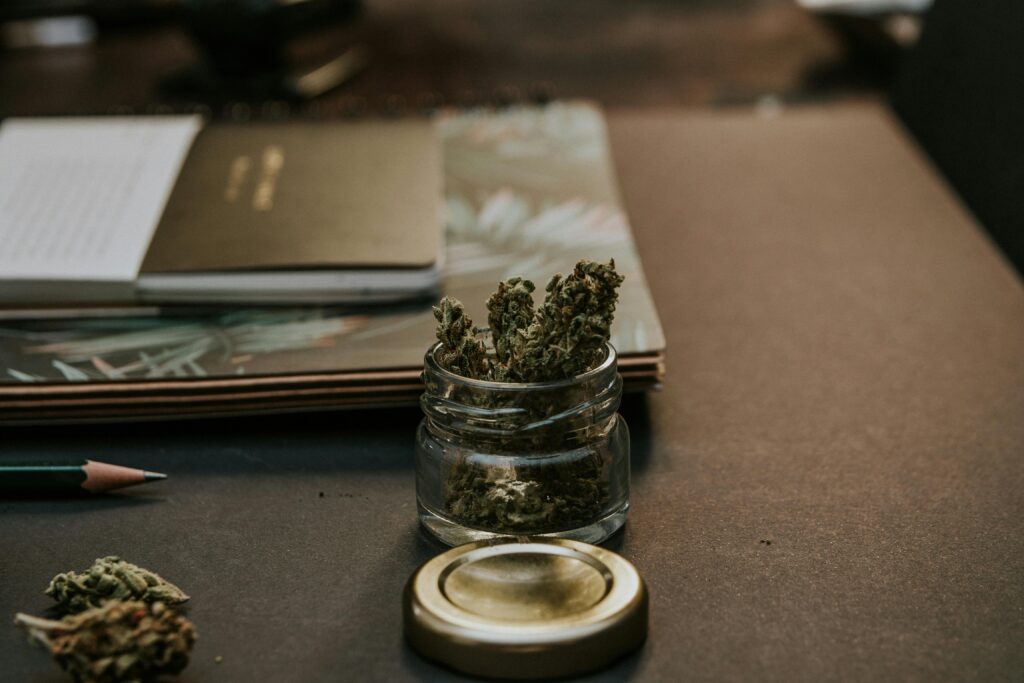
I love to research companies online. Finding objective views and content that could lead me to a low-risk, high-reward decision that will lead to the bonus dopamine hit of planned accomplishment.
As a researcher of the web, I understand these tactics are only as strong as the availability of honest quality content. Dispensaries have much less avenues to promote their story, and even harder is having customers excited to promote their feedback publicly versus a restaurant who is trying to get new fans. I thought I’d ask dispensary owners how hard they think it is to find a great dispensary.
In otherwards, how many dispensaries / brands do they feel are putting quality versus quantity? If the number is low, am I wasting my time going website to website versus trying to find someone on the inside that can give me some intel?
How Many Dispensaries Don’t Targeted Top Brands Only? I hear its high. Like 80%, 90% I’ve heard from some owners.
Betty Nugz
I would say the vast majority, I mean, I’m I’m with you, 80%, 90%. I’ll tell you my perspective of what I think is the biggest problem. It might not be because they don’t have a quality product to offer to medical and recreational patients. My personal experience from dealing with a lot of dispensary owners, and you know, just the the industry at large is the margins are thin for retailers. It’s difficult to turn a profit, because the operating costs are so high. So what I see throughout the State is products that are inferior and not because they’re not high testing in THC or not, because they don’t have a robust terpene panel. It’s it’s mainly because, a majority of the dispensary owners.
They’re on such a tight budget that they can only afford let’s just say flower, for instance. They can only afford economy. Flower, that’s at a a really cheap bottom tier price. Now, the problem with that is, I mean, it’s okay to sell economy flour, especially to the people that like to smoke a lot. But the problem with the economy flour and the economy products in general is that I’m seeing I I microscope a lot of samples. I microscope everything. and I see a lot of mold. And I see a lot of Bud Rock, and I see a lot of unhealthy products. At that price point for the economy price.
When you have dispensaries that may just maybe they just don’t know. Maybe they don’t have that experience or take the extra mile to take a microscope and really look at that closely. So maybe it’s just ignorance. But there’s a lot of lower priced products that are unhealthy. and I know that it has to go through the lab, and it has to get its testing done. But at the end of the day when you’re taking a 15 pound batch of flour and you’re testing it. You’re testing 4 grams out of 15 pounds. Just the nature of that batch style testing there’s gonna be some oversight of moldy products that pass through the system. Th, that’s just the way it’s gonna be in every state, no matter what you do. So there’s lower tiered priced products a lot of times.
They’re just to put it plain and simple, unhealthy. And I think that’s the biggest detriment to the general public, and for medical patients is the product that they’re getting might possibly be unhealthy.
Discussion With Cisco Romero and Lila
I would say 9 out of 10 are doing it right to the best of their ability and fewer than that know what they’re doing.
Not all cannabis is created equal. There are differences in the quality of the soil, the testing, and ensuring chemicals are not found in the cannabis consumed by customers. Lava Leaf takes pride in ensuring the highest level of quality assurance when many products are sold unchecked for many harmful chemicals.
A lot of multi-state operators and other companies that have come in including the new mom and pops I’ve met are investing everything in cannabis. Many of these people went all in without a real business plan or one that was based on false assumptions and they need to generate a profit to satisfy investors or support themselves. And so that’s why so many of them have to trust that other people are doing their jobs right? It’s like they figure if it wasn’t legit, then it wouldn’t be on the market. It took us over 2 years to get our first visit from the CCD.
Whenever you have Regulators that are not equipped to regulate a new market. There’s gonna be people that take advantage of that. I know some of these retailers, and I’ve had the talks with them, and I think that if they had the information, they would have made different choices. But it’s very hard for a company like ours to communicate this without sounding like haters.
We have to be very careful about the way we discuss these things, and you know we end up having to just say, this is the standard that we hold, but it hard when everybody else claims to hold the same standard.
We have seen that it’s just not the case, you know. I mean, there’s brands that I can’t name, because they have been busted. But even then their fines were a little slap on the wrist like $15,000 whenever they’ve done a few million dollars in revenue. We know that they have a war chest bigger than ours, and they can sue us into oblivion if we say their name. So it’s it’s very difficult, because you just have to speak in super general non specific terms. In order to not incriminate yourself and defame others. And so we had to be very, very careful about how we word things with the insinuations that are made.
We just stay very vague, very general, and kind of remind people by asking, Do you remember when the program was launching and every article was about shortages? Where do you think all that product came from? How do you think these out of State manufacturing companies moved to New Mexico and instantly have distillate connections that allowed them to produce, you know, 10 different lines of edible products and support so many retail locations. The medical patients get it because the medical patients remember that under medical the industry itself, only had about a 2 week supply at any given time.
it’s just not as simple as good guys and bad guys, it’s mindfulness vs mindlessness really. I think the vast majority of people that are in this business or are in it for the right reasons, and they have the heart. They see the medicinal benefits of the product, and they want to share that. There’s very, very few people that are truly only in it for the money. there’s a few of those I’m sure, like in any business. But I think cannabis on average, probably has less of those than other industries.
That’s why I see that even though it’s gotten off to kind of a funny start, I do believe it’s gonna correct and end up in a really really good place in the next few years, because the the people that we know even the ones that have supported these companies that we refuse to support. At the end of the day. They’re still good people. They’re doing it for the right reasons. They really support their staff and get behind their people. They just really wanted to expand and grow their businesses where they’ve had success in other states or other cities. They’re just doing their thing. We we’re looking at everybody in this space as redeemable
No one is lost forever, you know there’s not like Oh, well, you’re done, and now you’re you know you’re permanently one of them. I just think it’s a matter of learning and course correction. And you know, standing this industry up in a responsible way. But everybody in this industry has had some experience, or direct knowledge of illicit market activity because this substance was totally illegal when we were all growing up.
I think it’s, you know, we try to not just be black and white with our approach to things and see it as like, okay, well, we’re not gonna deal with them right now. But let’s see how how they grow. And companies can be just like people where they grow, they evolve, and if they’re growing and evolving in the right direction, and willing to apologize and make some level of amends for their mistakes then we can forgive, forget and move forward. That’s the way we’re approaching the industry here in New Mexico.
Discussion With Tony Martinez


